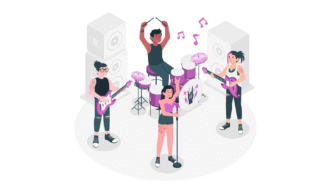LESSON OVERVIEW
The main objectives of this lesson are to:
- discuss memory, techniques to improve one’s memory, and factors affecting memory;
- watch and discuss a video about a memory championship;
- learn vocabulary connected to the topic.
With this ESL lesson about memory training, students practise their own memory skills as well as discussing their memory habits, abilities, and techniques to remember things. They watch and discuss a video about a memory championship. Students also consider what factors affect memory abilities and learn vocabulary connected to the topic (e.g. unforgettable, revision). They discuss brain training apps, share experiences, and apply memory techniques to different situations.
WARM-UP AND VIDEO
This ESL lesson about memory training starts with a fun warm-up! Students look at some words and numbers for thirty seconds. They try to remember them and write them down without looking at the information. Next, students discuss some general questions about their memories and techniques to remember things. Before watching a video about a memory championship, students read some details and try to predict what the story will be about. Then, watch the first part of the video and see if they’re close. Students then need to look at the definitions of ‘nature’ and ‘nurture’ and match them correctly. They say if the rest of the video is going to suggest that ‘nature’ or ‘nurture’ is more important in achieving good learning results. They watch the rest of the video, check their answer, and then discuss more questions on the topic and about improving one’s memory.
VOCABULARY AND DISCUSSION
In this next part of the ESL lesson about memory training, students practise suffixes by choosing the correct endings for some words connected to the topic (e.g. championship, competition). The words are embedded in different tips about memory training, which the students then discuss in relation to specific situations. For example, they suggest what technique might help when trying to remember a phone number or memorize a recipe. Next, students practise the vocabulary by talking about related scenarios for one minute (e.g. when competition made you work harder). As a fun twist, this ESL lesson about memory training contains a suggestion to ask students again if they can still remember the information from the warm-up.
HOMEWORK/REVISION
This lesson plan also includes an additional task that you can use as homework or revision. In the task, students read a text about brain training apps and replace the parts in bold with the words and phrases in the boxes. The task is available in the teacher’s version of the worksheet. You can print it and hand it out to your students. It’s also included in the e-lesson plan.
Subscribe to unlock these and many other Standalone lesson lesson plans with the Unlimited plan
WORKSHEETS














Comments